Changing India with Digital Technology:
Taisys Technologies Company
Esther Tseng / photos Kent Chuang / tr. by Phil Newell
January 2025

With the OmniCard issued by Taisys India, one can pay for things through an app instead of by cash. The photo shows the app being used to buy a beverage from a roadside stand.
Taisys Technologies Company, which got its start making SIM cards, currently has five subsidiaries worldwide. Of these, the one in India has a 65% share of the national Internet of Vehicles (IoV) SIM market, making it a hidden champion among Taiwanese businesses in that country. India currently has a population of 1.4 billion, and the key to Taisys’ success there has been “finding the right people.”
We go with Indian employees of Taisys India Pvt., Ltd. and use OmniCards (similar to Taiwan’s EasyCards) issued by Taisys to take the Delhi Metro and to buy beverages from roadside vendors.
Starting from SIM cards
In fact, inside of every OmniCard is a SIM card, which was the star product that enabled Taisys to earn its first fortune after being founded by Jason Ho in 2005.
Ho wrote operating system software onto a tiny chip, and after obtaining patents in various countries, began to search for a company to manufacture this product. Thanks to Taiwan’s advanced capabilities in semiconductor manufacturing technologies such as integrated circuit packaging, Taisys’ super-thin “smart thin-film SIM cards” not only can be inserted into cell phones to enable global roaming, they also have payment functions. Thus Taisys has been able to supply SIM cards for banking and telecom services in more than 20 countries. Even a leading bank in faraway Kenya has sought out Taisys, highlighting Taiwan’s prowess in microchip technology R&D and manufacturing.
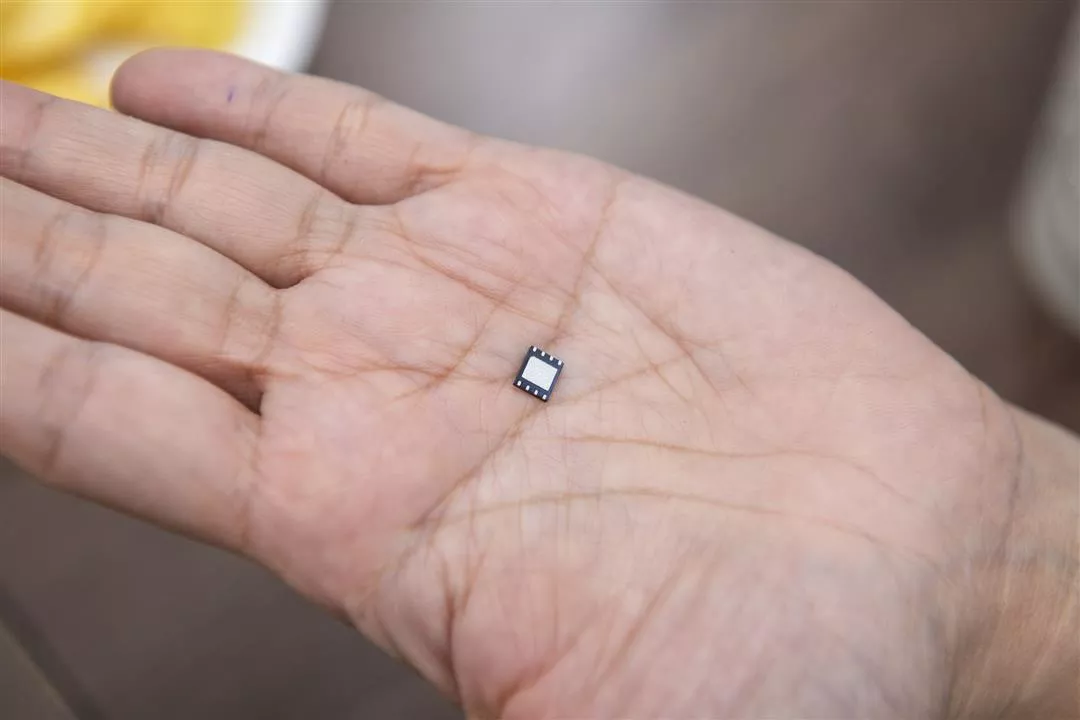
Smart thin-film SIM cards highlight Taiwan’s capabilities in microchip technology R&D and manufacturing.
Regulatory issues
In 2013, the National Payments Corporation of India (NPCI) also called upon Taisys with the aim of launching e-wallet services. But unexpectedly Taisys encountered problems with the banking regulator: the Reserve Bank of India (RBI) required Taisys, which was not a bank, to first get a license from the government to provide payment services.
In addressing this issue, Jason Ho found two people to whom he is eternally grateful, but he also made a decision that he regrets to this day. One of these benefactors was A.K. Purwar, a long-time heavyweight in India’s banking sector and former chairman of the State Bank of India. Ho asked Purwar to act as chairman of Eroute Technologies, which owns OmniCard and was founded with investment from Taisys, and to use his expertise and contacts to help out.
The second was Abhishek Saxena, a heroic figure in Ho’s eyes. Ho headhunted Abhishek from Taiwan’s HTC Corporation to become managing director at Taisys India. Ho says that Abhishek is a graduate of a top-flight academic institution, one of the Indian Institutes of Technology, but unlike many other elite Indian tech students who were intent on seeking their fortunes in Europe or America, he was determined to return to India to found his own business and use his skills to make a contribution to his homeland.
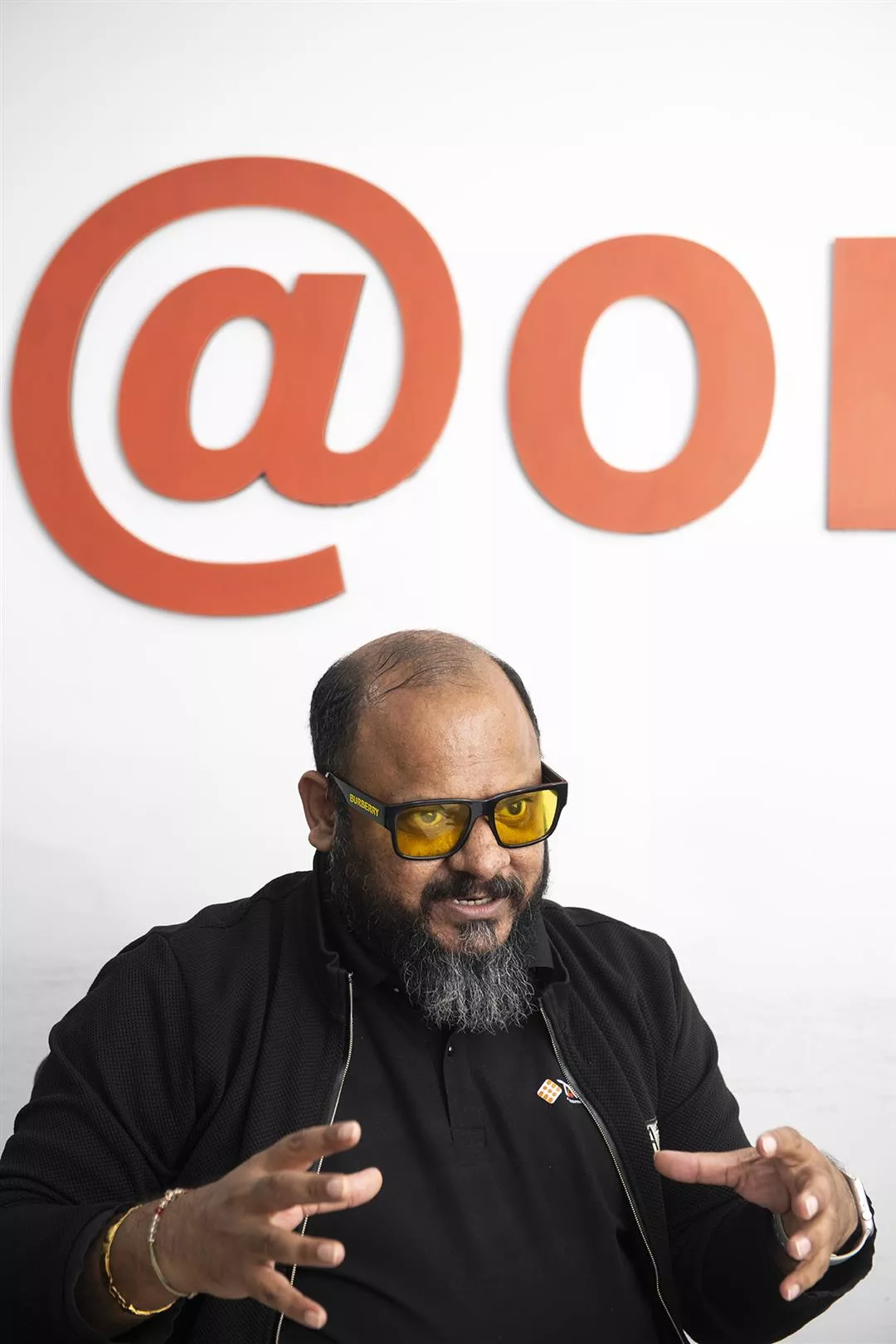
Abhishek Saxena is living his dream of returning to India to head up a new company and use his expertise in digital technology to make a contribution to his homeland.
A good impression of Taiwan
Abhishek, wearing a pair of fashionable glasses and speaking in a soft voice, having just concluded a meeting with Volvo, tells us about his connection with Taiwan.
Back in those days, when many people had no clear idea of the difference between Taiwan and China, Abhiskek acquired a mobile phone produced by HTC. “Somebody told me it was a Chinese cell phone, but I felt very surprised that China could make such a high-quality device. So I went online to check, and found that it was made in Taiwan. Other brands including Asus and Acer were also Taiwanese, and the quality of their products was very different from those made in China.”
Abhishek then found an opportunity to come and work at HTC in Taiwan. He relates: “The food in Taiwan is really fantastic. My favorites are stir-fried cabbage, kung pao chicken, and mapo tofu [bean curd and minced pork in chili sauce]. Another dish that is really delicious is beef noodle soup.” With a humorous wink he adds: “Indians aren’t supposed to eat beef, but it’s OK because this is Taiwanese beef, not Indian beef.”
Originally he planned to stay in Taiwan for three years and then return to India to start his own business. But because he was so fond of Taiwan, with even his vegan wife and his school-aged daughter enjoying living here, he ended up staying for six years, until he met up with Jason Ho.
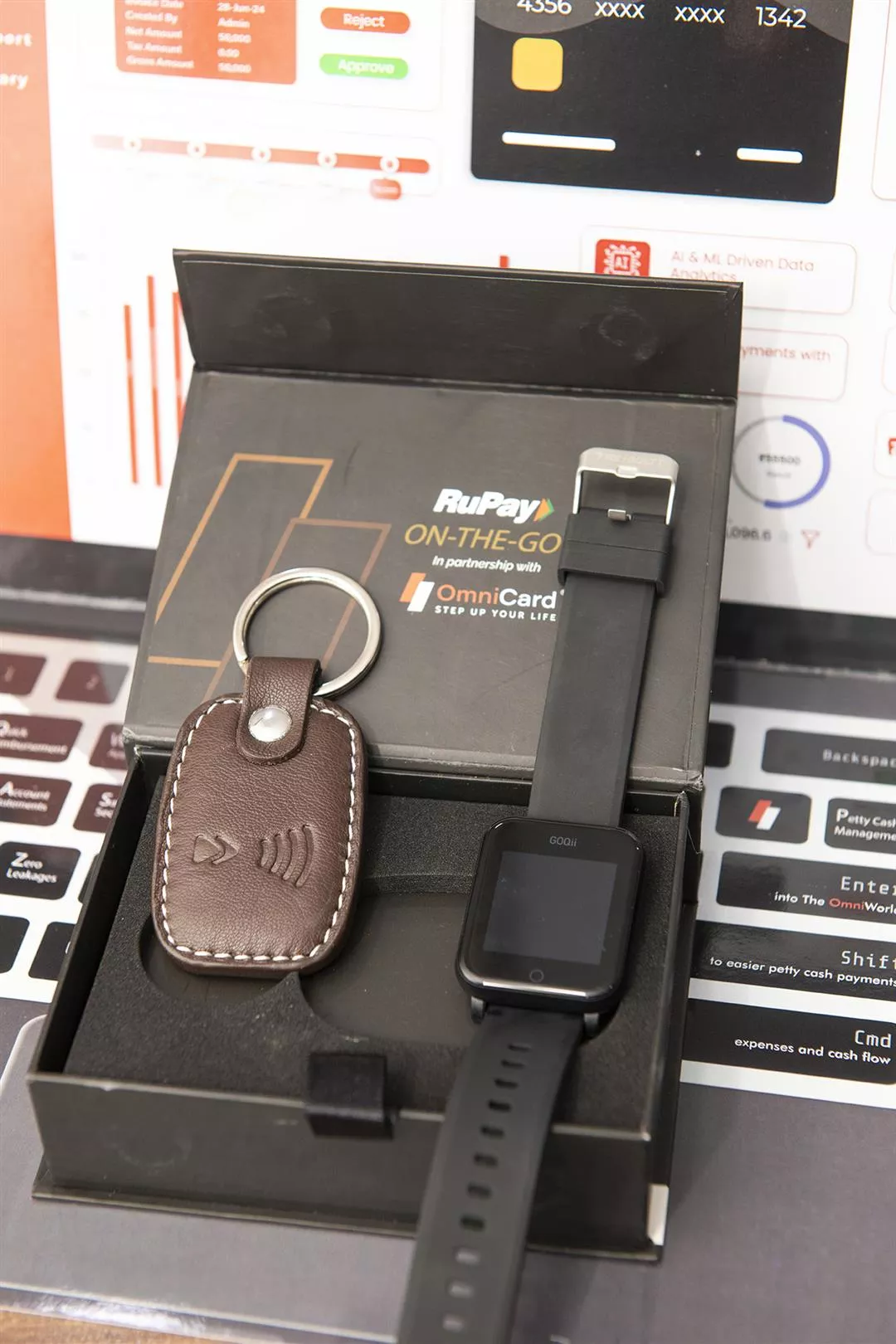
Taisys has integrated its payment system into portable and wearable items.
Digital transactions, financial inclusion
Abhishek returned to India in 2015, and working with his team, the company received a payments license from the RBI in 2021. At that time applicants included tech giants like Google and Facebook, but, as Abhishek proudly says, “We didn’t have a great deal of capital, but we found favor in the government’s eyes thanks to our technological advantages and our digital payments plan.”
Abhinav Saxena, Abhishek’s younger brother, who is likewise an engineer and currently serves as chief technology officer at Taisys India, notes: “We were the first company that was not a bank to get approval to issue digital stored-value cards.” Because they are extremely convenient, they have proven popular among a broad base of consumers, which is also the essence of “financial inclusion.”
Abhinav explains that Taisys has integrated this payment system into mobile phones, wristbands, and key fobs, so that with a simple “beep” people can not only ride the metro and make purchases, but can also use their devices as access cards. The team at Taisys India has also developed a corporate version of their payments system for use by businesses. Via an easy-to-read spreadsheet which registers payments to and by employees, enterprises can manage their payroll, expenses and petty cash budgets, thereby reducing administrative costs by up to 20% and avoiding onerous paper-based reporting and reimbursement procedures for expenses.
Looking at the global market, Abhishek suggests that while back in the day not many companies could use online payment systems to deal with such corporate headaches, today 250 large hotel and restaurant chains and other companies with roughly 2 million users are doing so.
Internet of Vehicles for a safer society
In 2023, Abhishek, who is a master of innovation, combined GPS with various technologies including Internet of Things connectivity to expand into Internet of Vehicles (IoV) applications, such as mileage calculation and monitoring systems. He also incorporated AI computation and coordination.
At present Taisys’ IoV operations have a 65% market share in India. Abhinav mentions some examples of IoV applications: Mining companies may want to prevent drivers of transport vehicles from secretly selling coal off their trucks. Also, with respect to concerns about poor driving by drivers of goods vehicles or buses, through monitoring and effective management using the IoV, unacceptable driver behavior can be reduced, as can the risk of accidents due to drunk driving, thereby enhancing road safety. IoV technology can even provide insurance companies with data to rule on claims.
Jason Ho notes that in order to deter sexual harassment or assault on women bus passengers, Indian government regulations now require GPS to be installed on public transit vehicles. However, at present this rule only covers large buses. Ho says: “I want to recommend to the Indian government that any vehicle that carries passengers commercially, no matter the size, should have IoV GPS installed.”
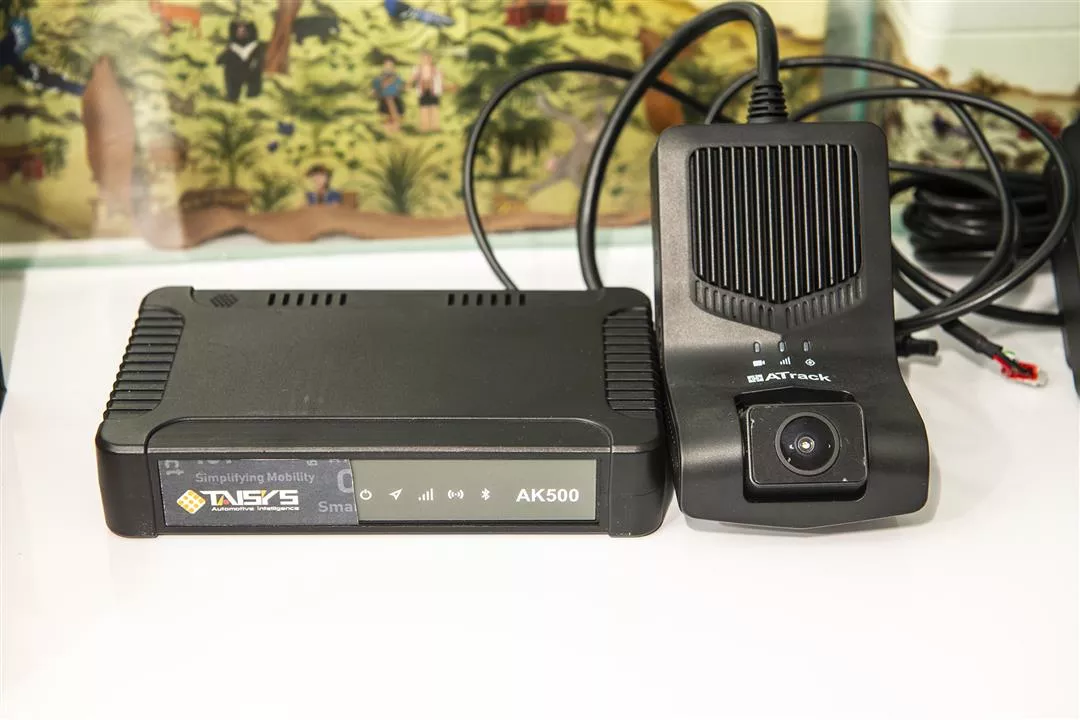
The Internet of Vehicles, which applies Internet of Things technology, uses GPS tracking to record each driver’s route, thereby facilitating vehicle fleet management.
Demographic and technological dividends
But what is it that Jason Ho regrets about the early days of his business in India? He explains that when he first wanted to sell SIM cards to banks, the banks asked him to reduce the price from the original US$10 per card to US$2, but this would have lowered his profit so much that he refused. Now he regrets this decision, for if the cards had really been issued, today there would be at least 300 million users.
Pointing to a large photograph of Mahatma Gandhi, the father of modern India, on the wall of his office, Abhishek, who has traveled to some 30 countries, says: “Gandhi is my hero. He originally lived abroad and understood the world very well, but he decided to return to India. He woke up the Indian people so that they were no longer like a frog in a slowly boiling pot of water that will ultimately be scalded to death. Under Gandhi’s leadership, the people of India changed themselves and their situation.”
“Gandhi was very great, whereas I am insignificant. I returned to India because I knew that there are many things about India that need improvement. But I also know where my country’s advantages lie! I hope that my work can bolster my country’s strengths and help every individual to bring their own power and capabilities into play.” This is Abhishek’s patriotic motivation.
As Ger Baushuan, Taiwan’s representative in India, puts it: “India needs more Abhisheks and Jasons and it will become a better place.” Through digital technology, and in partnership with Taiwan, India is on the road to growth.
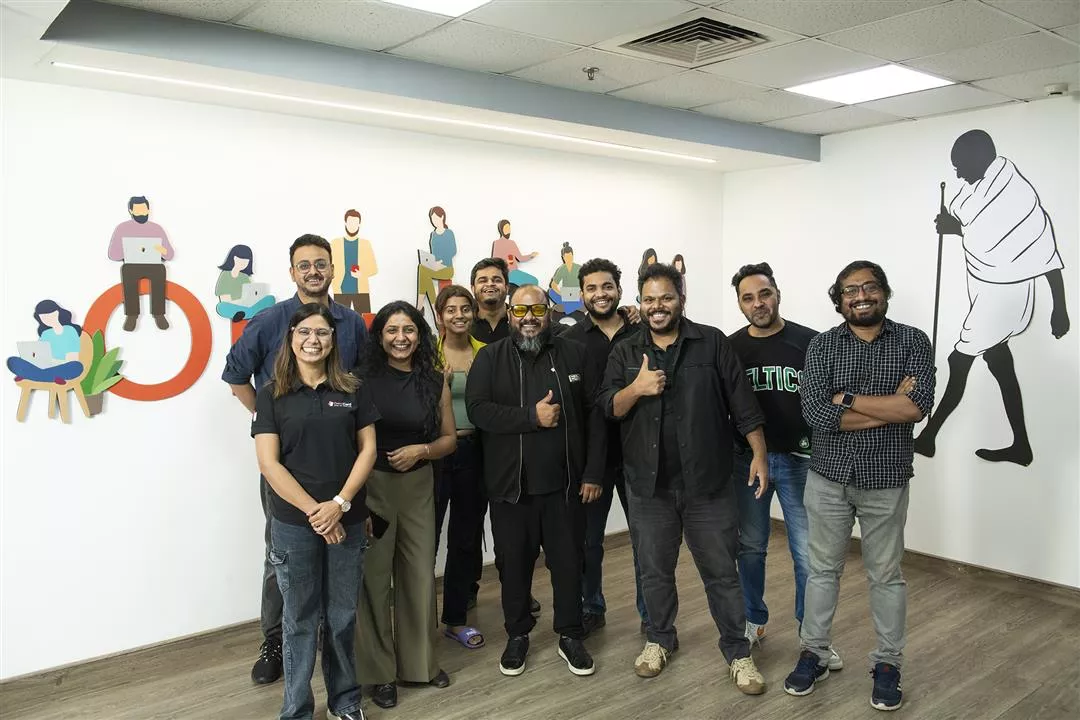
Taisys’ Indian team is like a big work family, with everyone knowing the goals they are striving for and cherishing the value of their jobs. The photo includes Abhinav Saxena (third from right), Taisys India’s chief technology officer, and his brother Abhishek (fifth from right), its managing director.







@List.jpg?w=522&h=410&mode=crop&format=webp&quality=80)